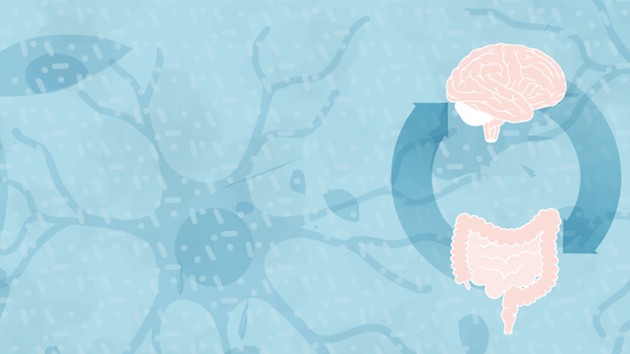Collection |
Collections
Filters
-
Collection Type
-
-
Collection |
 Key Advances in Medicine 2018
Key Advances in Medicine 2018
Much like our oceans, the world of clinical and biomedical research is vast, fast-paced, dynamic and full of unanswered questions. In 2017, numerous advances were made that could change the tide of efforts to fight disease. The Key Advances in Medicine eBook distils the major discoveries made in 2017 and highlights trends to look out for in 2018.
-
Collection |
 Neuroendocrine function in the hypothalamus
Neuroendocrine function in the hypothalamus
A collection of articles from Nature Reviews Endocrinology on the role of the hypothalamus in endocrine regulation, covering aspects of obesity, metabolism and reproduction.
Image: Emma Carter -
Collection |
 The obesity epidemic: molecular and clinical considerations
The obesity epidemic: molecular and clinical considerations
To mark World Obesity Day on 11 October 2017, the editors of Nature Reviews curated a collection of articles that describe the latest efforts to understand the molecular mechanisms underlying the condition against a complex backdrop of factors, as well as advances in treatment.
Image: Laura Marshall/Macmillan Publishers Limited -
Collection |
 2017 Nobel Prize in Physiology or Medicine
2017 Nobel Prize in Physiology or Medicine
The 2017 Nobel Prize in Physiology or Medicine was awarded to Jeffrey C. Hall, Michael Rosbash and Michael W. Young for their elucidation of the molecular mechanisms controlling circadian rhythm. Their pioneering work in Drosophila uncovered the internal oscillators, or clocks, that synchronize cellular metabolism and organismal behaviour to the light/dark cycle to generate biological rhythms with 24 hour periodicity.
Image: Macmillan Publishers Limited/The Nobel Foundation/Imagesource -
Collection |
 Endocrine disruption
Endocrine disruption
A collection of articles from Nature Reviews Endocrinology on the biological effects of endocrine-disrupting chemicals and implications for human health.
Image: Macmillan Publishers -
Collection |
 Gut-brain axis
Gut-brain axis
Collection of articles from the Nature Research journals covering advances in understanding the gut-brain axis.
Image: Laura Marshall -
Collection |
 Bone biology and disease
Bone biology and disease
A collection of articles from Nature Reviews Endocrinology and Nature Reviews Rheumatology on the pathogenesis, diagnosis and treatment of common and rare bone diseases, and skeletal complications associated with communicable and noncommunicable diseases.
Image: Nicola Hawes/Macmillan Publishers Ltd -
Collection |
 Fibrosis: mechanisms and targets
Fibrosis: mechanisms and targets
The collection consists of Reviews and Research articles from several Nature journals, describing the latest advances in fibrosis research in various organs, including the liver, kidney, heart, skin and lung.
-
Collection |
A Decade in Medicine
The past 10 years has seen great advances in the understanding and treatment of human disease. For expert perspectives on the most important breakthroughs, don't miss the FREE A Decade in Medicine eBook. In this special collection of 47 articles, leading experts highlight the most important advances in eight medical specialties between 2004 and 2015, and comment on future developments in their fields.
-
Collection |
Noncoding RNAs in endocrinology
Noncoding RNAs have important roles in the development and regulation of the endocrine system. Dysregulation of noncoding RNAs, in particular microRNAs, is associated with endocrine dysfunction. This Nature Reviews Endocrinologyweb collection on noncoding RNAs in endocrinology provides an overview of the role of these molecules in the pathogenesis of endocrine disorders such as adrenal and thyroid cancers and diabetes mellitus, as well as in normal physiological processes, such as bone growth, pregnancy and labour. The selected articles highlight current and future applications of noncoding RNAs as diagnostic and prognostic biomarkers and as therapeutic targets for personalized management of patients with a wide range of endocrine diseases.
-
Collection |
Fertility and reproduction
In the developed world, birth rates are plummeting and, increasingly, individuals are delaying reproduction. At the same time, rising rates of obesity and cancer are affecting fertility (both by virtue of the disease burden and the effects of treatment). A number of factors have been shown to affect fertility in men and women, including oxidative stress, hormonal and metabolic dysfunction and physical deformity. This joint Nature Reviews UrologyandNature Reviews Endocrinologycollection on fertility and reproduction contains Reviews and commentaries written by key opinion leaders on a range of topics pertinent to the subject, from the molecular mechanisms regulating fertility and reproduction to the preservation of fertility and treatment of infertility in both men and women.

 Genetic and epigenetic insights into autoimmunity
Genetic and epigenetic insights into autoimmunity